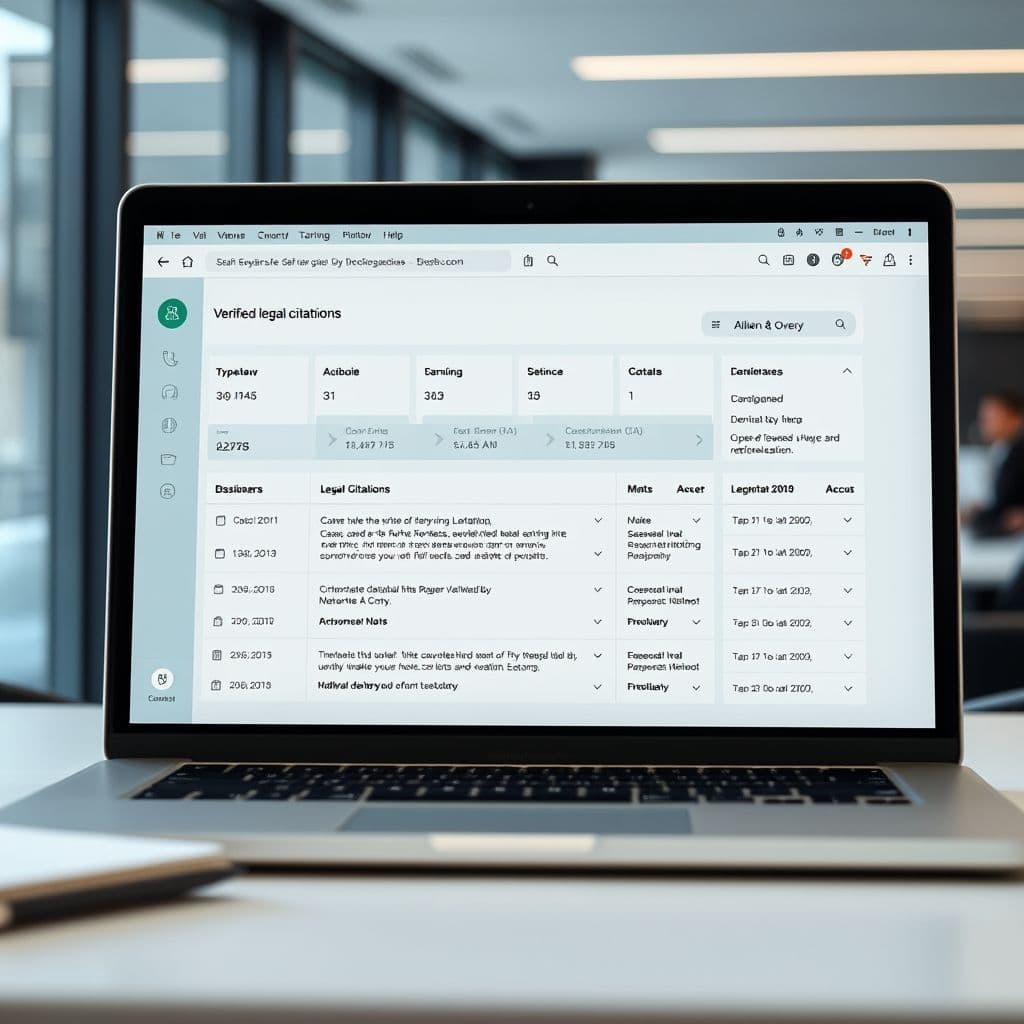The Problem with AI-Generated Legal Information and a Potential SaaS Solution

AI tools like ChatGPT have revolutionized how we access information, but when it comes to legal research, their inaccuracies can lead to serious consequences. From lawyers citing fake cases to students failing assignments due to misinformation, the problem is widespread. This article explores the issue and presents a hypothetical SaaS solution to ensure reliable legal information.
The Problem: AI Hallucinations in Legal Research
AI-generated legal information is often riddled with inaccuracies, a phenomenon known as 'hallucinations.' Users report cases where ChatGPT and similar tools cite non-existent legal precedents or misrepresent real cases. This issue is particularly alarming in the legal field, where accuracy is paramount. Lawyers, students, and even professors have fallen victim to these inaccuracies, leading to sanctions, failed assignments, and eroded trust in AI tools.

Idea of SaaS: A Verified Legal Information Platform
Imagine a SaaS platform designed specifically for legal research, integrating verified legal databases and citation support. This tool would cross-reference AI-generated responses with authoritative legal sources, ensuring accuracy and accountability. Unlike general AI tools, this platform would prioritize reliability over speed, providing users with confidence in the information they receive.
Key features could include real-time citation verification, jurisdiction-specific legal databases, and alerts for potential inaccuracies. By focusing on verified data, this SaaS solution would address the critical need for trustworthy legal information in an era where AI hallucinations are all too common.

Potential Use Cases
This SaaS platform could be invaluable for lawyers needing quick yet accurate legal references, law students conducting research, and even educators verifying the sources cited in student papers. By providing a reliable alternative to general AI tools, it could reduce the risk of misinformation and its associated consequences.
Conclusion
The inaccuracies in AI-generated legal information highlight a critical gap in current technology. A dedicated SaaS platform offering verified legal data could provide the reliability that professionals and students desperately need. While this idea remains hypothetical, its potential to transform legal research is undeniable.
Frequently Asked Questions
- How viable is developing a SaaS platform for verified legal information?
- Developing such a platform would require integration with authoritative legal databases and robust verification algorithms. While complex, the demand for accurate legal information makes it a promising venture.
- Can existing AI tools be improved to reduce legal inaccuracies?
- While improvements are possible, general AI tools may always struggle with the precision required for legal research. A specialized SaaS solution could offer a more reliable alternative.


